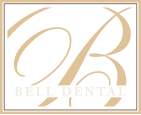TMJ FAQs
TMJ is an acronym which stands for temporomandibular joint. The temporomandibular joint is located just in front of the ear on either side of the head. When inflammation or injury affects this joint, it is known as temporomandibular disorder (TMD) or temporomandibular joint disorder. Characterized by jaw pain as well as a variety of other symptoms, TMJ disorder is a complex condition which varies from patient to patient. For more information about TMD, consult our TMJ FAQ page.
What is the difference between TMJ and TMD?
TMJ refers specifically to the joint situated in front of the ear which allows the jaw to move up and down, front to back, and side to side. TMD stands for temporomandibular disorder which encompasses several conditions related to the TMJs and the jaw. Sometimes, TMD is referred to as TMJ disorder or TM disorder.
The only way to determine if jaw clicking is caused by TMD is to consult your dentist.
Do popping jaw joints mean that I have TMJ disorder?
The answer is possibly. Popping in the jaw joints is a symptom of TMD. However, it has other possible causes. Many individuals experience intermittent clicking of the jaw joints, so on its own, popping is not a cause for alarm. The only way to determine if jaw clicking is caused by TMD is to consult your dentist. If you experience related symptoms, such as headaches or jaw pain, it is especially important to schedule an appointment.
Will TMD treatment stop my migraines and/or ringing ears?
There is a clear connection between chronic headaches, tinnitus, and TMD. However, while most patients experience relief of migraines and ringing ears after treatment, there is no way to guarantee a complete cessation of symptoms.
How long will I have to wear my TMD splint?
In general, you should not wear your TMD splint for more than six months as overuse can lead to other issues. Your dentist may recommend you wear the splint all the time or only at night. Your treatment will depend on the alignment of your jaw as well as the severity of your symptoms.
Why do some doctors condone neuromuscular dentistry, while others don't support the philosophy?
Currently, neuromuscular dentistry is not recognized as a speciality by the American Dental Association (ADA). While there is research that suggests this method can provide relief for TMD sufferers, the efficacy of this treatment has not been concretely proven. Neuromuscular dentists believe they can achieve effective, long-lasting results by permanently realigning the jaw. Opponents of the philosophy say there is little scientific evidence to support the technique.
Will insurance cover neuromuscular diagnosis of TMD?
Typically, dental insurance will not cover the cost of neuromuscular diagnosis or treatment. However, medical insurance may cover a portion of your care. It is important to discuss your insurance coverage with your dentist or health care provider before beginning treatment to discover if you will receive coverage.
Once I've completed treatment and received a good bill of health, can TMD return?
Since the jaw joints are constantly moving and under stress, it is possible your symptoms could return. In some cases, the symptoms return even worse than they were before. Fortunately, your dentist or doctor can often treat recurring symptoms using similar methods.
What diseases have symptoms similar to TMD?
While TMJ disorder is commonly associated with symptoms such as headaches, popping jaw joints, and tinnitus, other conditions can cause these issues, such as:
- Migraines or tension headaches
- Giant cell arteritis
- A broken jaw
- Trismus
- Meniere's disease
Similar symptoms can also be related to cocaine abuse.
Can orthodontic patients wearing braces also wear an oral splint for TMD treatment?
Yes. Although not all orthodontists use this method, some practitioners offer a combination of braces and oral splints for faster treatment.
Can a sleep apnea splint or snore guard double as a TMD splint?
While in some cases a sleep apnea or snore guard can relieve the symptoms of TMD, you should never attempt to treat your condition yourself. In some cases, sleep apnea splints can actually worsen the symptoms of TMD. Always consult your doctor or dentist before using one device to treat another issue.
Are there exercises to help relieve TMD pain?
There are many different exercises that can help to relieve your jaw pain, such as:
- Place your thumb below your chin and press lightly on the chin bone. Slowly open your mouth, working against the resistance from your thumb.
- Place your tongue on the roof of your mouth and slowly open your jaw without moving your tongue.
- Push down on your bottom teeth with one hand and, at the same time, push upwards with your jaw.
- Cross your arms across your chest with one hand on each shoulder. Stretch your neck backwards and to the right. Then switch sides. This exercise helps to relieve related neck tension.
Your doctor, dentist, or physical therapist can recommend specific exercises based on your symptoms.
What habits contribute to TMD pain?
Many TMD patients suffer from chronic stress and anxiety, which can cause them to unconsciously clench their jaw or grind their teeth. These habits can exacerbate TMJ symptoms. Other harmful habits include frequent gum chewing, resting the chin in the hand, poor posture, yawning too wide, and chewing ice or pencils.
Can children develop TMD?
Yes. While TMD is much more common for patients in their 20s to 40s, children can suffer from the condition as well.
Can denture wearers develop TMD?
Yes. In fact, ill-fitting dentures frequently cause jaw pain and TMD. When patients wear false teeth that are too loose, they unconsciously try to bring them into alignment, putting constant strain on their TMJs. Additionally, it can take longer for denture wearers to chew up their food, meaning their jaw must move more than those who have natural teeth or dental implants.



